Key Concepts in Medical Ethics
- Autonomy: The principle that individuals have the right to make their own decisions about their healthcare.
- Beneficence: The obligation of healthcare providers to act in the best interests of the patient and to do good.
- Non-maleficence: The principle that healthcare providers must do no harm to the patient.
- Justice: The fair and equal distribution of healthcare resources and the fair treatment of all patients.
- Confidentiality: The obligation of healthcare providers to protect the privacy of patient information.
- Informed consent: The process of ensuring that patients have all the necessary information to make decisions about their treatment.
Study Guide for Medical Ethics
When studying medical ethics, it's important to understand the key principles and how they apply to various medical dilemmas. Here are some key topics to focus on:
1. Autonomy and Informed Consent
Understand the concept of autonomy and how it relates to a patient's right to make decisions about their own healthcare. Study the process of obtaining informed consent and the ethical issues surrounding decision-making capacity.
2. End-of-Life Care
Explore the ethical considerations surrounding end-of-life care, including euthanasia, physician-assisted suicide, and the withdrawal of life-sustaining treatment. Consider the principles of beneficence, non-maleficence, and patient autonomy in these situations.
3. Medical Research and Experimentation
Examine the ethical guidelines for conducting medical research involving human subjects. Consider the balance between the potential benefits of research and the protection of participants' rights and welfare.
4. Access to Healthcare
Investigate the ethical issues related to the allocation of healthcare resources, including the distribution of medications, organ transplantation, and the provision of care to underserved populations. Consider the principles of justice and equity in healthcare delivery.
5. Professional Integrity and Confidentiality
Explore the ethical responsibilities of healthcare professionals, including the duty to maintain patient confidentiality and the implications of breaches of confidentiality. Consider the impact of electronic health records and information technology on patient privacy.
.◂Science Worksheets and Study Guides Seventh Grade. Cell Processes

 Activity Lesson
Activity Lesson
 Worksheet/Answer key
Worksheet/Answer key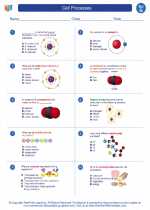
 Worksheet/Answer key
Worksheet/Answer key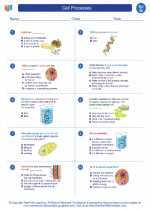
 Worksheet/Answer key
Worksheet/Answer key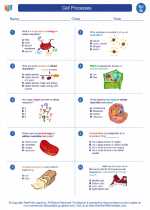
 Worksheet/Answer key
Worksheet/Answer key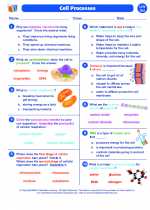
 Vocabulary/Answer key
Vocabulary/Answer key
 Vocabulary/Answer key
Vocabulary/Answer key
 Vocabulary/Answer key
Vocabulary/Answer key
 Vocabulary/Answer key
Vocabulary/Answer key
 Vocabulary/Answer key
Vocabulary/Answer key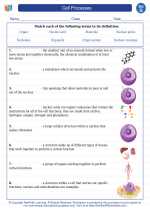
 Vocabulary/Answer key
Vocabulary/Answer key
 Vocabulary/Answer key
Vocabulary/Answer key
